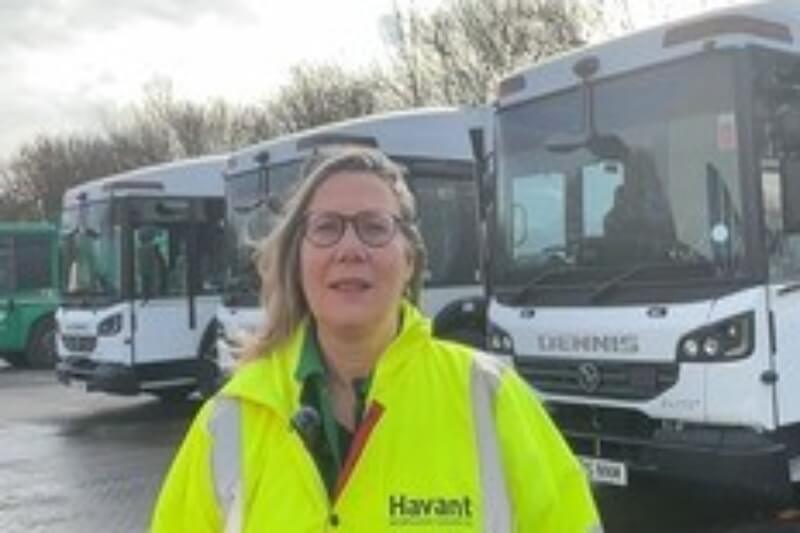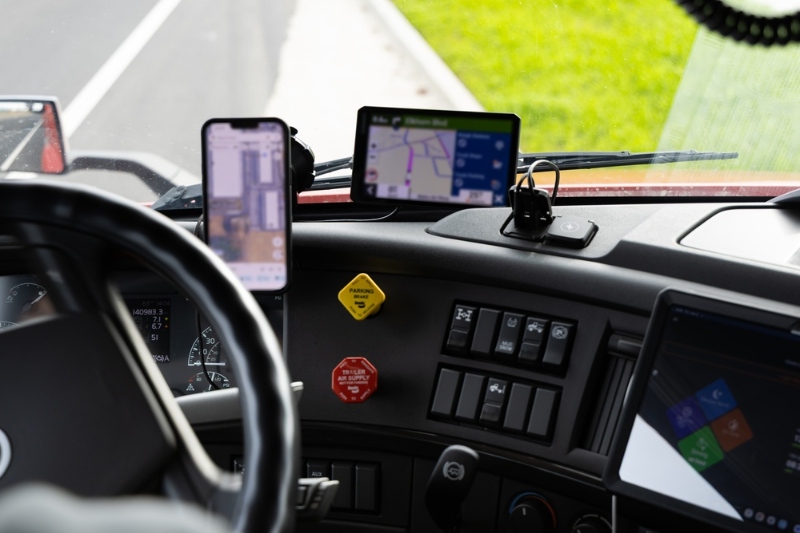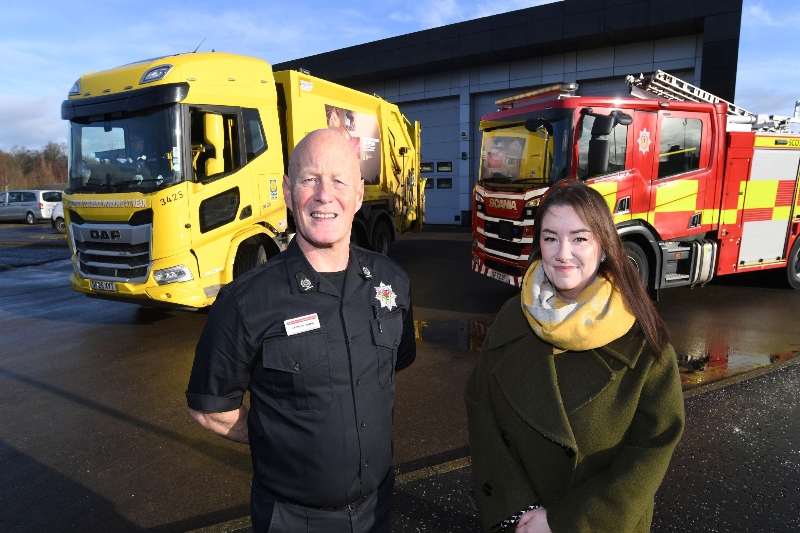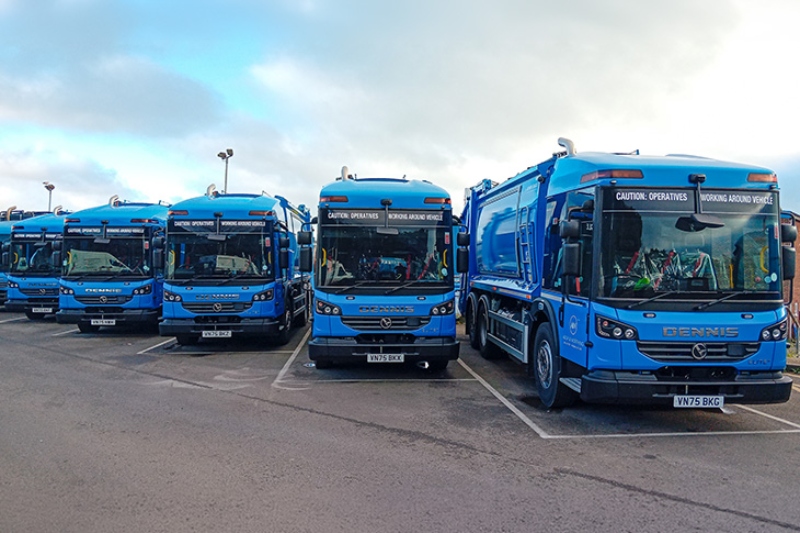After the successful Fleet Procurement Forum in Edgbaston in March, LAPV carried out a reader survey on the topic of procurement of specialist fleet for the public sector. This article provides an overview of the response received, including some very interesting industry insights. Report by Ann-Marie Knegt.
The majority of respondents worked for a district council (29.5%), followed closely by county councils (20.5%) and unitary councils (19.2%). The private sector was represented by 6.4%.
The sectors in which the responding readers worked reflected LAPV's circulation, with the main areas being highways maintenance, leasing and contract hire, street cleansing and waste, grounds maintenance, and procurement.
Most respondents were fleet managers, followed by procurement specialists, and transport managers came third. 'Other' job titles were listed as risk managers, waste and transport manager, direct service manager etc.
37.2% of the respondents were responsible for specifying products and services, while 25.6% influenced spend and 26.9% authorised spend.
Over one third of people had a budget of over £5m, closely followed by around a third who dealt with budget of 1m-5m, and just below a third dealt with £100k to £1m.
When asked what they most required in order to fullfill their current role, procurement advice and examples of best practice came out second to top. The largest requirement was for specific procurement frameworks for specialist fleet. More networking opportunities with other buyers and sellers also scored relatively high.
Product recommendations from other local authorities were seen as 'essential' by many, and around two third of people would like more references from other public sector organisations.
40% of respondents found that there was enough communication between manufacturers and end users in advance to the procurement process. At the same time 42.9% stated that there was room for improvement in the communication process, while 19.5% stated that communication wasn't suffient at all.
So what could improve the situation, LAPV asked?
Some preferred more and honest dialogue during the pre-tendering and the procurement stage, while others asked for industry forums in which manufacturers and local authorities would both be present with more structured and consistent communication channels. Respondents also asked for better pricing structures for lower numbers of vehicles.
'With current procurement restrictions our hands are tied regarding demonstration vehicles and talking to some dealers. This needs to be improved to allow a wider range of suppliers to tenders,' said one local authority.
One respondent commented: 'We need more transparency in terms of rates and the ability to compare frameworks to establish value for money.'
Others asked for closer cooperation between the Crown Procurement Service to ensure Pan Government frameworks are suitable for use. This was echoed by respondents who asked for more collaboration across the entire public sector.
One commented: 'We need a sensible procurement hub, managed by industry experts, rather than tick-box compliancy officers.'
'There should be more communication between manufacturers and the operators of frameworks, and cab specifications should be more tailored to the needs of the public sector and utilities,' said another.
A private industry response was: 'There is a need for buyers to understand that some SMEs require a level playing field when involved in e-tenders.'
Most of the participants (61.3%) were generally happy with current frameworks for the procurement of fleet and services, but still thought that there was room for improvement, while 30.7% were, all in all, satisfied with the current provision.
The majority (67.1%) felt that current frameworks were fit-for-purpose for acquiring specialist fleet and related services. However, 23.7% stated that they didn't feel that they were, and15.8% were not sure.
One participant responded: 'Current systems are way out from what is required. Action is needed, it is just too difficult to buy vehicles.'
Someone else stated that there was no flexibility within frameworks, and another remarked that CCS Frameworks tended to favour Central Government and not local authorities.
Why were some people not happy with the current provision of frameworks?
77.8% responded that they were just not specific enough for the purchase of specialist fleet, while 55.6% said that there was not enough flexibility in them. Interestingly, 44.4% stated that they were only suitable for prescribed buying.
Other reasons given were that frameworks were too expensive and lacked the opportunity for a detailed commercial dialogue. Some opinions seemingly conflicted: someone said that there were too many frameworks already, while someone else commented that there was a limited choice of frameworks. However, it could be concluded that people were looking for a more user-friendly experience when using frameworks. 'Some are fit-for-purpose, some are too onerous,' a participant said.
An important point was made by one person who commented that elements of the evaluation process were outside the control of the tendering authority.
Most of the respondents, however, would be keen to sign up for a new framework if it was suited to their requirements (83.1%), but 16.9% would not sign up for a new framework. Reasons provided were that there were too many frameworks in the industry already. Other councils had already initiated their own. The Welsh authorities stated that they had their own National Procurement Service, and did not have the ability to choose their own as they would be steered towards a nationally-recommended one.
In conclusion, LAPV asked in the survey if respondents would benefit from a procurement hub that included supporting events (eg drive days), informative conferences, detailed procurement information, supplier/end-user networking opportunities that also allowed tenders for fully inclusive fleet maintenance contracts ' in short a procurement hub with frameworks that enabled innovation. 62.7% declared a resounding yes, and said they would sign up for a procurement hub such as the one proposed, while 37.7% said that they would not.
What did our industry want to see as part of this procurement hub?
The majority wanted to see a procurement hub with frameworks geared towards their specific industries ' waste, highways, grounds care, winter services and other local authority sectors.
Secondly, they wanted to see tender options for fully-inclusive contracts and collaborative procurement. One respondent remarked that collaborative procurement should be the default position, rather than an option.
Tender options for fleet consultancy or to enter competitive dialogue were also high on the list of requirements. People wanted more access to the latest information and guidance on EU, Central and Local Government Procurement legislation, and this was closely followed by: EP procurement support services, member and supplier meetings and specialist national and regional fleet management conferences and events.
Conclusion
Frameworks were initially designed to make the procurement process simpler and more cost effective for all parties involved. It is apparent from this survey that many do not experience this process as such. With constant changes in legislation, progression of vehicle technology, and an increased pressure on local authorities to hit emission targets, there is a need to improve communication channels and structure between all parties involved ' private sector, local authorities, framework operators and central Government.
On one side many feel that there are too many frameworks already, and that red tape is convoluting the procurement process. On the other side there is also an obvious requirement for more industry-specific methods of purchasing fleet.
Our sector is also asking for more innovation and, especially on the private side, many SMEs are finding the current status quo for procurement too onerous and expensive, with a need for increased transparency during the procurement process.






